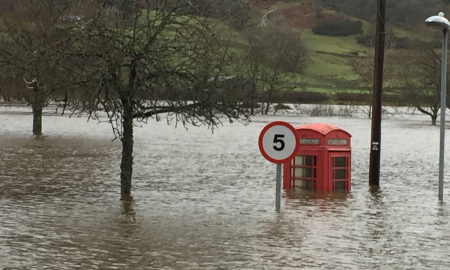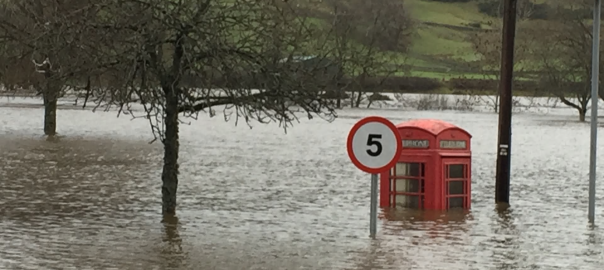National review prompted by severe flooding in recent winters anticipates 20-30% more extreme downpours than before

The UK’s new flood defence plans anticipate significantly higher extreme rainfall, after new research was published as part of the government’s National Flood Resilience review.
The government, which had been criticised for not taking full account of the impact of climate change in driving up flood risk, will now plan for 20-30% more extreme downpours than before.
The review, prompted by severe flooding in recent winters, also found that 530 critical infrastructure sites, such as water and telecoms, are at serious risk from floods, each potentially affecting at least 10,000 people. Utility companies have pledged to have new protection in place by the end of the year.
The government’s official climate change advisers recently warned that flooding could cause a cascade of emergencies by knocking out energy, transport, water and communications links.
The review allocates £12.5m for more temporary defences, such as barriers and pumps, at strategic locations around the country. By this winter, the government said, four times more temporary barriers will be available.
“Last winter we saw just how devastating flooding can be. This review sets out clear actions so we are better prepared to respond quickly in the event of future flooding and can strengthen the nation’s flood defences,” said the environment secretary, Andrea Leadsom.
Ben Gummer, Cabinet Office minister, said:
“The government has made clear that we expect water and telecoms companies to work ever closer together to improve their preparation and response to flooding, making sure lifelines such as mobile phone masts and water treatment works continue to function.”
Bob Ward, policy director at the Grantham Research Institute on Climate Change at the London School of Economics and Political Science, said:
“This review was launched because the government was caught out by [recent] flooding. It deserves credit for admitting that ministers have previously misunderstood and significantly underestimated the probability of flooding.
“However, it is disappointing that the government chose to ignore surface water flooding during the review, even though it poses a threat to more properties in the UK than does coastal and river flooding.”
Read more: The Guardian
